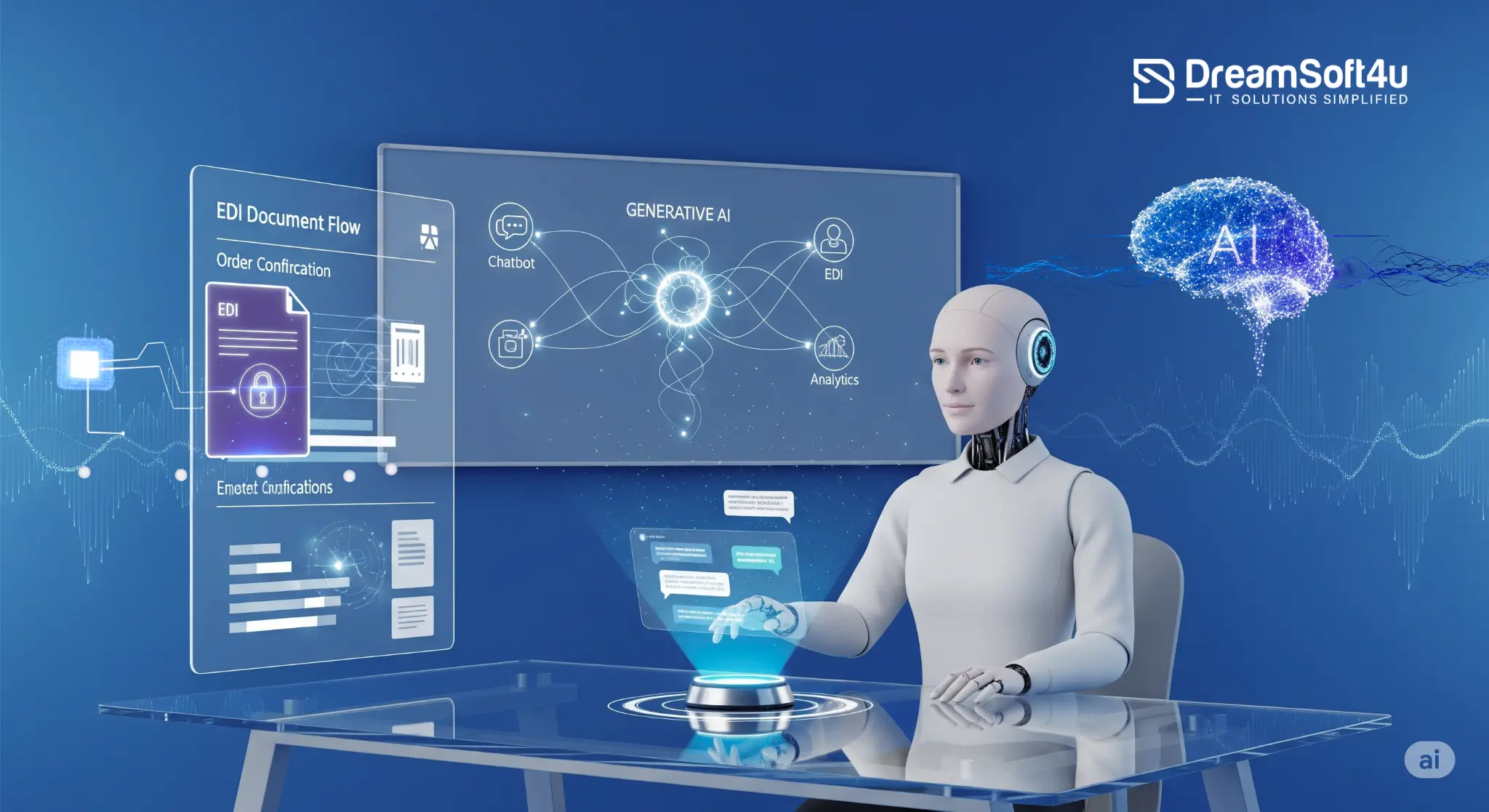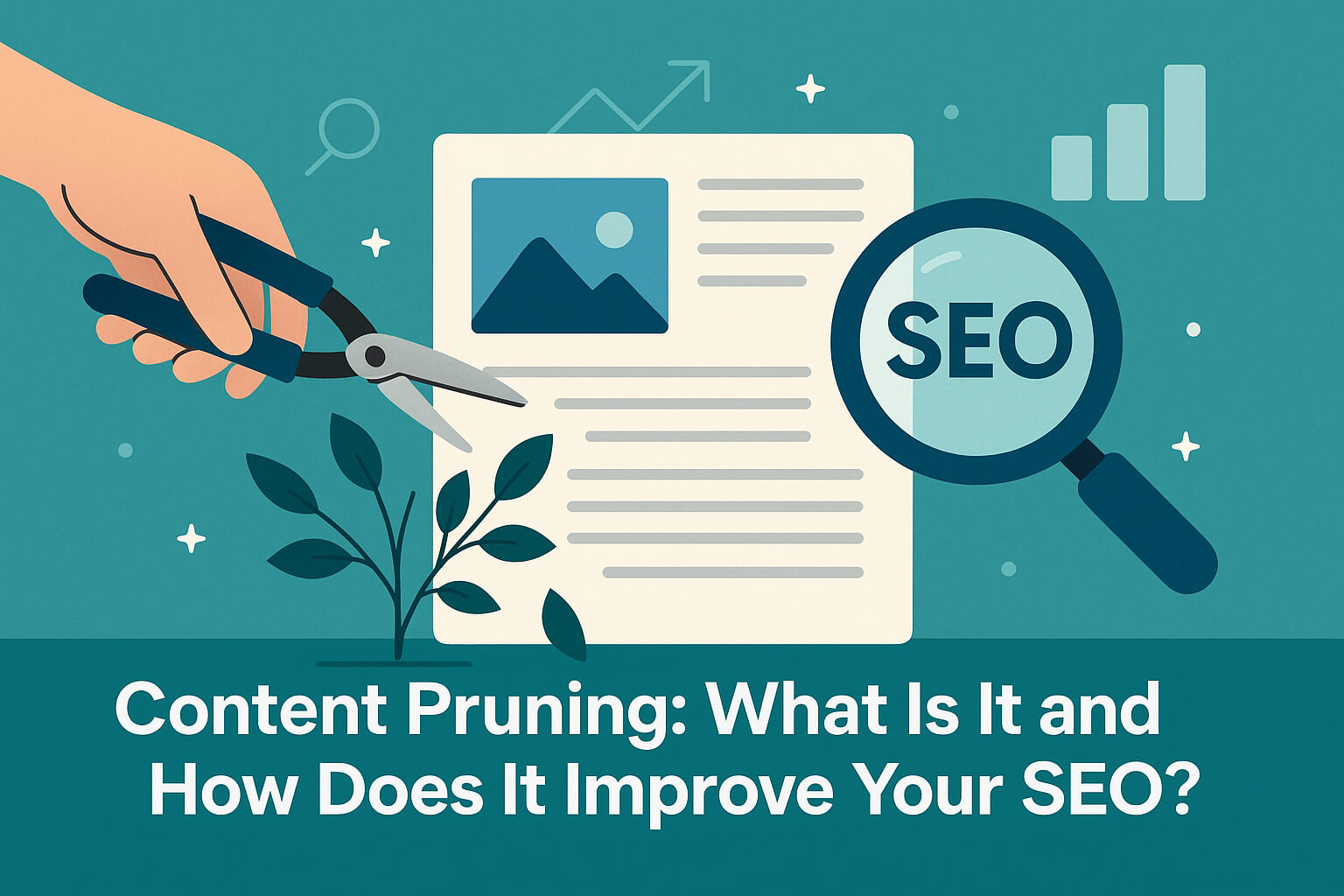Building Domain-Specific AI Agents for EDI: Why Off-the-Shelf Chatbots Fail in Regulated Industries

In today’s fast-evolving business landscape, artificial intelligence (AI) has moved far beyond being a buzzword. From automating workflows to enhancing customer support, AI systems are playing an increasingly strategic role. However, when it comes to highly regulated industries-such as healthcare, finance, logistics, and insurance-off-the-shelf AI chatbots and generic automation tools fall short. That’s especially true in domains reliant on Electronic Data Interchange (EDI), a core infrastructure for transmitting business-critical data in standardized formats.
This blog explores the vital need for domain-specific AI agents in edi integration-focused environments, why traditional chatbot solutions fail to deliver, and how Generative AI Development Services, custom AI chatbot development, and EDI software integration come together to power smarter, compliant, and scalable enterprise systems.
Understanding the Landscape: What Is EDI and Why Does It Matter?
Electronic Data Interchange (EDI) refers to the structured transmission of data between organizations electronically. This data usually includes purchase orders, invoices, shipping notices, healthcare claims, and other transaction documents exchanged in formats like ANSI X12 or EDIFACT.
Industries like:
- Healthcare uses EDI for claims and patient eligibility checks (HIPAA-compliant 837/835/270 formats).
- Retail and eCommerce rely on EDI for inventory updates, purchase orders, and logistics.
- Finance handles EDI for payment remittance and reconciliation.
Given the standardized and regulated nature of this data, the systems that handle it must be:
- Accurate and consistent
- Secure and compliant with regulations (HIPAA, PCI DSS, SOX, etc.)
- Capable of integrating with legacy systems
The Rise of AI Chatbots and Agents – And Their Shortcomings
Most businesses adopt chatbots to automate repetitive queries, reduce support workload, and improve turnaround time. These off-the-shelf bots are designed for general use cases like:
- Booking appointments
- FAQs
- Order status inquiries
But when applied to regulated EDI-based workflows, these generic bots face multiple limitations:
1. Lack of Contextual Understanding
Prebuilt chatbots struggle to understand industry-specific codes like 837P (healthcare claim), 850 (purchase order), or NCPDP (pharmacy claim standards).
2. Inability to Interface with EDI Software Standards
Generic bots don’t interpret or process EDI documents or perform validations required before EDI submission.
3. Security & Compliance Gaps
Handling sensitive healthcare or financial data requires built-in encryption, audit trails, and regulatory compliance. Most off-the-shelf solutions lack these safeguards.
4. Minimal Customization
Even if chatbot platforms allow plug-ins, they rarely support deep customization needed to adapt to legacy EDI software or custom APIs.
Domain-Specific AI Agents: The Game-Changer
Unlike generic bots, domain-specific AI agents are built for a single industry or process, trained on specialized datasets, and fine-tuned for regulatory compliance.
What Are Domain-Specific AI Agents for EDI Software?
AI agents are autonomous or semi-autonomous systems that:
- Use natural language processing (NLP) to understand domain-specific terminology.
- Interface with EDI systems via secure APIs.
- Follow business logic to validate, route, or transform data.
- Operate under compliance-aware protocols (HIPAA, SOC2, GDPR, etc.).
How Generative AI Enhances Domain-Specific Agents
Generative AI Development Services go beyond NLP by enabling the creation of context-aware, human-like conversations and content generation. Within the Edi integration and chatbot context, Generative AI brings:
- 🧠 Advanced reasoning: Understanding document semantics, not just field values.
- 🛠 Dynamic form generation: Creating forms and suggestions based on data gaps.
- 🔐 Security layer embeddings: Embedding compliance protocols into the model behavior.
Instead of just replying, these agents can:
- Proactively identify missing information from EDI forms
- Validate if a claim is compliant before submission
- Alert users to inconsistencies in shipment records
- Auto-generate reconciled reports from EDI logs
Integrating with EDI Software: Technical Considerations
Building AI agents that work seamlessly with existing EDI software systems-like IBM Sterling, Cleo Integration Cloud, or in-house custom stacks-requires:
1. Custom Middleware Development
To translate between EDI syntax and chatbot APIs.
2. Authentication & Role-Based Access
Ensuring user identity validation, role-based permissions, and secure sessions.
3. Workflow Automation Triggers
Triggering EDI workflows from chatbot/agent interactions claim status updates, resubmissions, or document validation flows.
4. Audit Logging & Analytics
Generating real-time logs for compliance tracking, plus dashboard analytics for internal QA teams.
The ROI and Business Impact
Implementing domain-specific AI agents for Edi integration and regulated workflows delivers measurable business benefits:
Reduced Operational Costs
Automating claims processing or logistics queries can reduce manual labor costs by 30–50%.
Faster Response Times
AI agents working with EDI data can complete document verification or issue resolution within seconds, improving turnaround and user satisfaction.
Improved Compliance
With built-in audit trails, versioning, and format verification, organizations are better prepared for HIPAA, PCI, or SOX audits.
Lower Error Rates
AI validation reduces manual entry errors and improves data integrity across integrated systems.
Future of Domain-Specific AI in EDI Software
The next evolution of domain-specific agents involves:
- Agent Collaboration
Multiple agents working together-for example, a billing AI talking to a compliance AI to verify healthcare claims.
- Multilingual Capabilities
Supporting diverse user bases, especially in insurance or government sectors.
- Real-Time Interoperability
Agents that interact with IoT devices in healthcare or logistics to validate inventory or patient vitals in real-time before EDI transmission.
- Embedded Learning
AI agents that continuously learn from interactions, feedback loops, and EDI transmission failures to optimize performance over time.
Real-World Example: Healthcare EDI and AI Integration
A U.S.-based healthtech provider integrated a domain-specific AI chatbot with its EDI software to manage prior authorizations and claims follow-up. Before AI, each case required 20 minutes of manual work. After AI integration:
- Turnaround dropped to 3 minutes per case
- Error rates dropped by 60%
- Staff capacity increased without hiring
This showcases how merging custom EDI software, Generative AI, and AI chatbot development services leads to enterprise-grade gains.
Conclusion
In an era where EDI continues to be the backbone of critical workflows across industries, relying on generic automation tools is no longer sufficient. Domain-specific AI agents, backed by Generative AI Development Services and tailored AI chatbot development, represent the future of smart, compliant, and scalable enterprise solutions.
By investing in purpose-built AI solutions that align with domain needs, businesses can not only enhance operational efficiency but also strengthen their competitive edge in regulated environments.
Ready to future-proof your EDI infrastructure? DreamSoft4u delivers end-to-end intelligent automation by blending advanced AI technologies with industry-specific needs. Our expertise spans custom AI chatbot development, domain-specific AI agent design, EDI software integration, and generative AI development services.
We recognize the complexities and compliance requirements in highly regulated sectors like healthcare, logistics, and fintech. That’s why our solutions are not only innovative but also tailored to align with operational workflows, data security standards, and seamless system interoperability-ensuring smarter, faster, and more reliable business outcomes.
FAQs
Q: What industries benefit the most from domain-specific AI agents?
Industries like healthcare, logistics, insurance, and finance, where EDI and compliance are central, benefit greatly. These sectors demand secure, specialized, and accurate AI behavior.
Q: Can AI chatbots be trained to understand EDI codes?
Yes, with proper NLP training and integration, AI chatbots can understand, interpret, and validate EDI document formats like 837, 850, and more.
Q: What’s the difference between AI chatbot and AI agent?
Chatbots usually offer linear interactions for basic support. Agents are more autonomous, contextual, and capable of decision-making, often integrated into business-critical workflows.
Q: How long does it take to build a domain-specific AI agent?
Depending on complexity, integrations, and regulatory demands, it may take 4–12 weeks to develop, test, and deploy a custom AI agent.
Q: Is Generative AI safe for compliance-heavy industries?
Yes-when implemented with access controls, encrypted transmission, and compliance guardrails. It enhances understanding and accuracy in regulated tasks.




